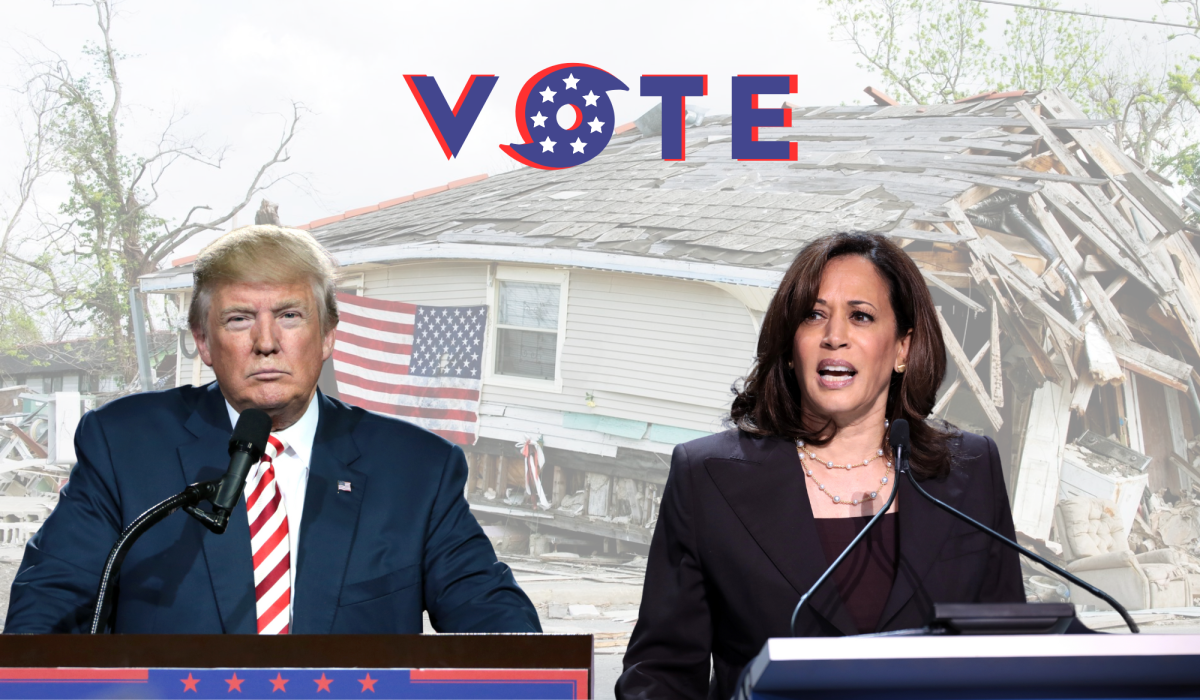In the aftermath of hurricanes Helene and Milton, states across the southern United States are going to court to try and extend voter registration deadlines. This has become an important topic as the hurricanes have created a voting access issue in some of the most key swing states for the 2024 Presidential Election taking place next month.
On October 9, 2024, Hurricane Milton made landfall near Tampa Bay, Florida as a category 3 hurricane. This storm hit just weeks after the devastating category 4 hurricane, Hurricane Helene, hit southern Florida on September 26, 2024. The destruction from these storms is still impacting the southern states with extreme flooding and wind damage.
The damage and storm evacuation orders have displaced many residents and made it difficult to reach polling locations. States like Florida, Georgia, Tennessee, and North Carolina are currently trying-and succeeding-at extending their voter registration deadlines and changing their voting methods in order to allow all citizens to have the opportunity to vote.
“A number of states have had to make modifications to their voting plans in response to damage from Hurricane Helene,” Forbes Article: How Hurricanes Milton And Helene Are Impacting Voter Deadlines In Key Swing States—As Groups Go To Court by Alison Durkee said. “North Carolina’s election board imposed a number of emergency measures to make it easier for voters in affected counties to cast a ballot, such as making it easier to change early polling sites and hours, allowing voters to vote at board of elections offices if they can’t get to their precinct and allowing voters to request absentee ballots in person through November, 4.”
While it seems that North Carolina and other states have been able to allow voters to register post hurricanes, it is not yet known how Hurricane Milton and Hurricane Helene will impact voter turnout and the results of the 2024 election. The main focus for states has been to make sure that there is access to voting, but not much focus has been put on making sure that all citizens cast their vote.
“I think that we’re far enough out from the presidential election, if there’s not another hurricane, that we can fix it enough so it won’t affect turnout,” Kim Guadagno, who oversaw elections when Hurricane Sandy hit New Jersey in 2012, said in an article in Politico by Madison Fernandez titled How the hurricanes could impact voting, according to a post-Sandy official. “But I did look at the voter turnout: In 2008 it was 72 percent. It dropped in 2012 to 66.8 in terms of turnout in New Jersey, and it went back up to 68.1 percent in terms of turnout in 2016. Was there a difference? Yes. Was it due to Sandy? I can’t think of any other factor that would have played a 2 percent role in turnout from ’12 to ’16.”
With the amount of damage caused by the hurricanes, people will be focused on fixing up their houses, and restarting their lives after the devastation of the storms. Many are worried that citizens won’t be focused on voting for the next president of the United States as they are about rebuilding after the hurricanes. It seems, however, that this was not the case in past presidential election years affected by hurricanes.
“The biggest surprise to us the morning of the presidential election was how many people were lined up to vote, and how many people insisted on exercising their franchise,” Guadagno said. “How many people said, ‘Okay, I cannot control the weather, I cannot control electricity, I cannot control the tides, but I can control who’s the next president of the United States.’ I think the surprise of 2012 was that people truly did want to vote in the districts that had been destroyed.”
Georgia and North Carolina have been swing states for years and will continue to be in this election. It is key for them to cast their votes, because every vote really does make a difference. With the election less than a month away, it is important that states begin to focus on voter turnout on-top of their voter registration expansion efforts.




